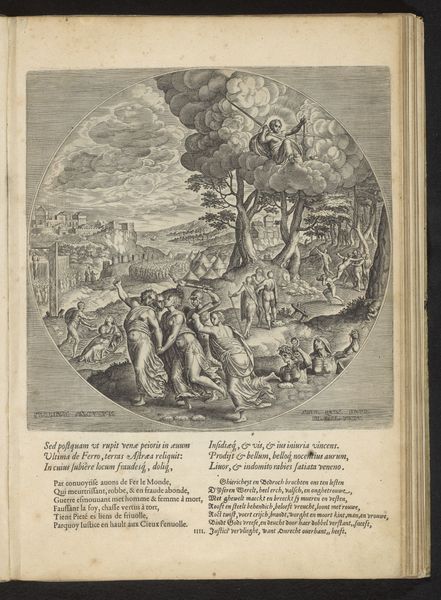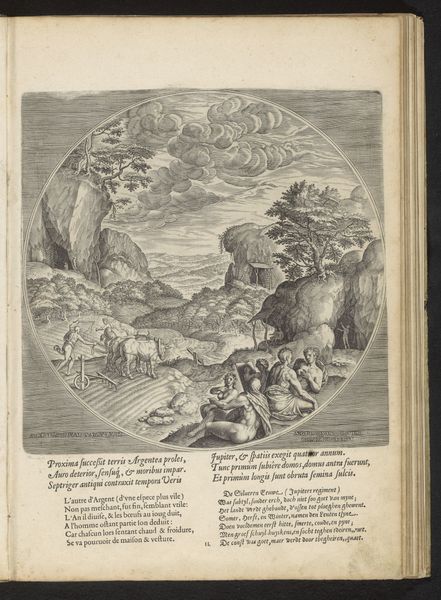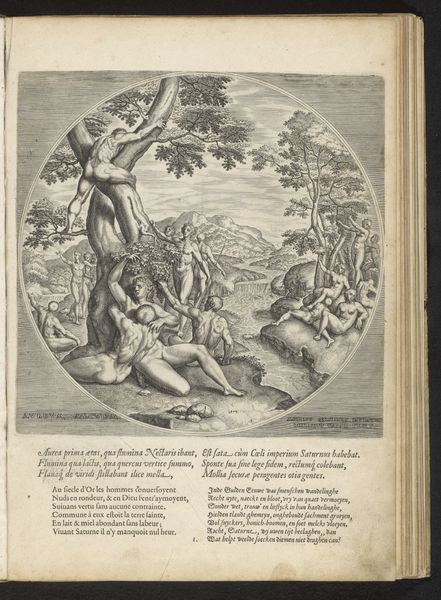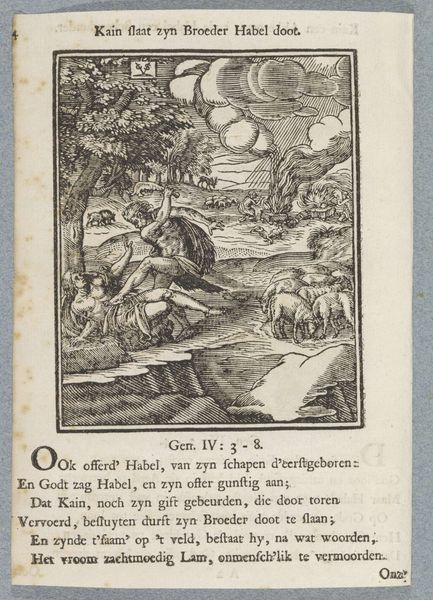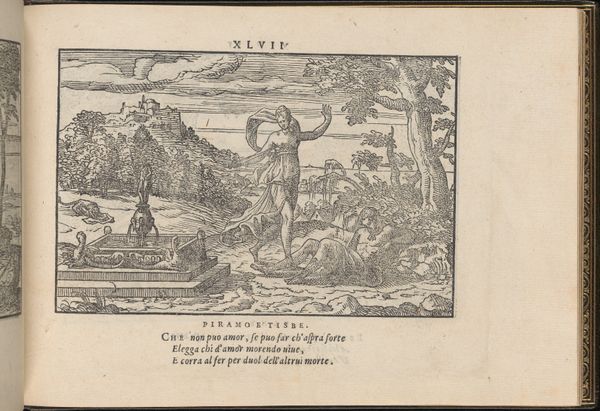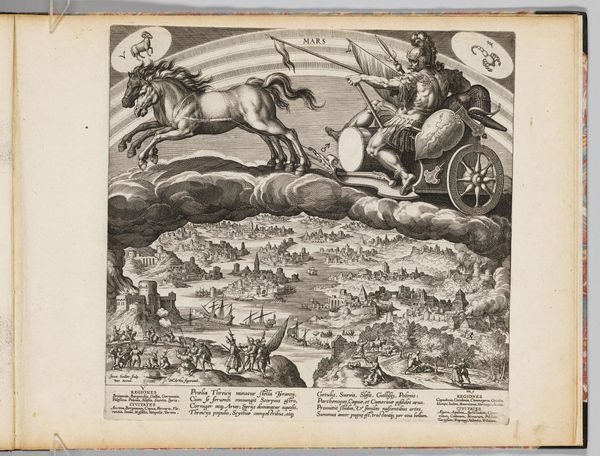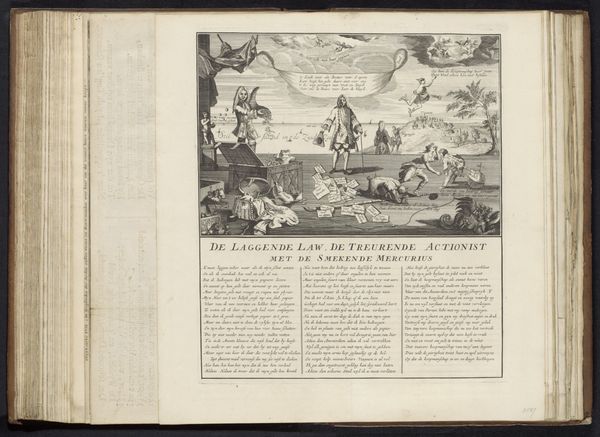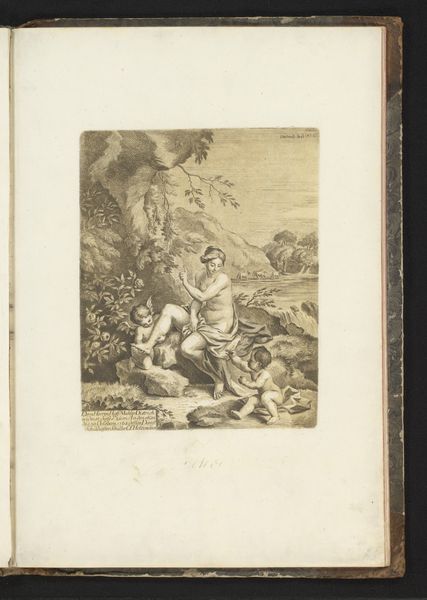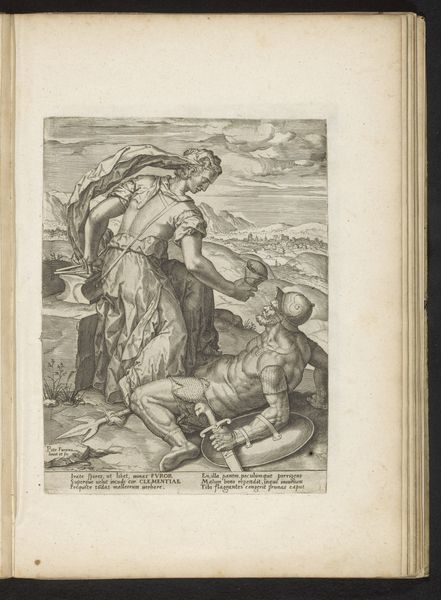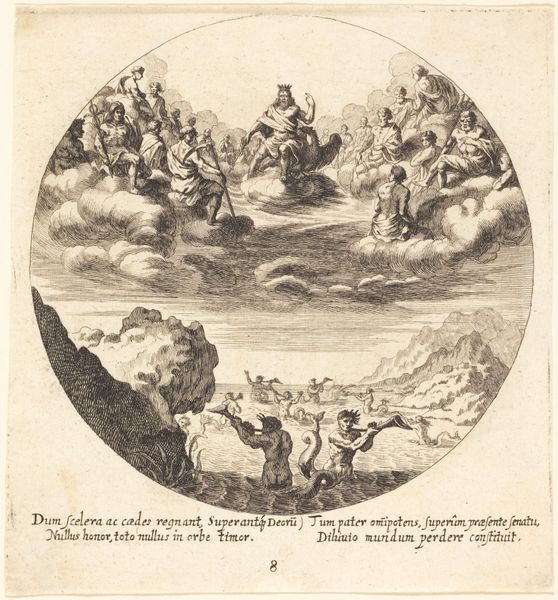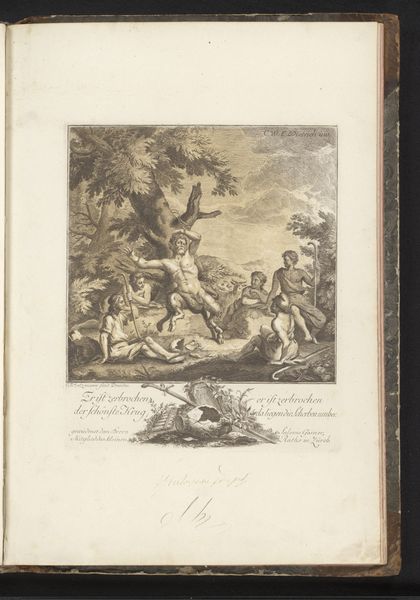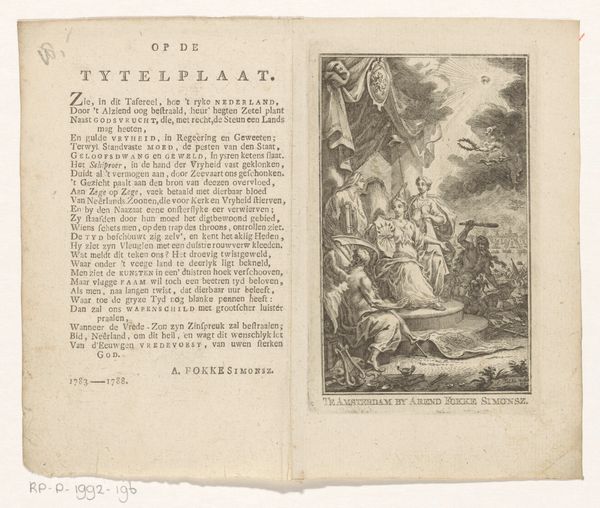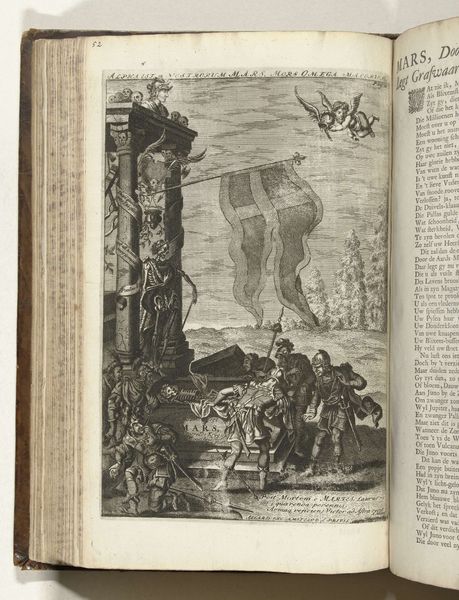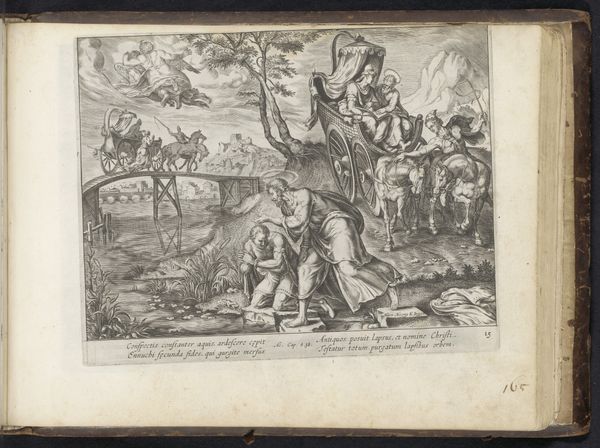
print, engraving
# print
#
landscape
#
figuration
#
northern-renaissance
#
engraving
Dimensions: height 242 mm, width 242 mm
Copyright: Rijks Museum: Open Domain
Philips Galle made this engraving, *The Bronze Age*, in the Netherlands, sometime in the late 16th century. Galle was a printmaker in the circle of the Plantin-Moretus publishing house in Antwerp. The image depicts the discovery of how to mine and process metals. The bronze age, of course, is named for one of those metals. Galle is interested in how this discovery changed social relations. In the foreground, naked men work in a mine. In the background, other men sail ships and build cities. This, the inscription tells us, is the age in which laws were made and boundaries were established. As such, Galle is pointing to something like an early theory of the social contract. To understand Galle's point of view, one could study the publications he was making prints for. What kinds of ideas were circulating through the early printing industry in the Netherlands at this time?
Comments
No comments
Be the first to comment and join the conversation on the ultimate creative platform.
